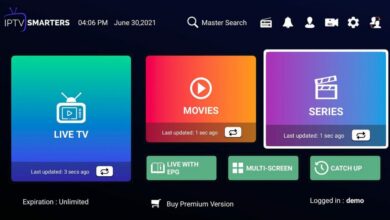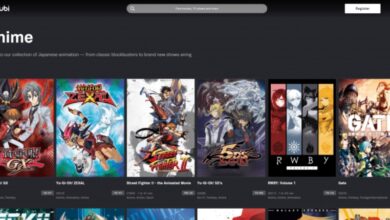The Future of Online Education: Trends and Innovations to Watch

Key Takeaways:
- Online education is rapidly evolving with new technologies and methodologies.
- Flexible learning models and improved accessibility are significant benefits of online education.
- University partnerships with companies and technological advancements are shaping the future of online learning.
- Focus on data and research to back up the transformative power of online education.
Table of Contents:
- Introduction
- Technological Advancements in Online Education
- Flexible Learning Models
- Accessibility and Inclusivity
- University-Industry Partnerships
- Future Predictions for Online Education
- Conclusion
Introduction
Online education has come a long way from its humble beginnings. With the advent of advanced technologies and innovative educational models, it has transformed into a robust alternative to traditional education. For those exploring online schools in Arkansas, the offerings have expanded significantly across various disciplines. This article explores the newest technologies influencing online education and offers valuable information and examples to shed light on these advancements.
Due to the pandemic, educators and students were forced to adjust as online learning platforms gained popularity quickly. What initially seemed like a temporary solution is now becoming a permanent fixture in the educational landscape. The ease and adaptability that come with learning online, coupled with technological advances, provide a compelling case for its continued expansion.
Technological Advancements in Online Education
One of the biggest drivers of change in online education is technology. Innovations like Artificial Intelligence (AI) and Virtual Reality (VR) are revolutionizing how content is delivered and consumed. These technologies enable more interactive and personalized learning experiences, significantly enhancing student engagement and success.
AI can adapt content to match each student’s learning pace and style, providing personalized feedback and recommendations. VR offers immersive experiences that help students understand complex subjects better. Both technologies pave the way for a richer, more engaging online education experience. For instance, AI-powered chatbots can answer student queries instantly, while VR can simulate real-world environments for practical learning.
Additionally, Learning Management Systems (LMS) advancements are making course management more efficient for educators. These systems offer sophisticated analytics to track student progress and identify areas for improvement. Integrating AI and VR with LMS platforms further enhances the learning experience, making it more comprehensive and practical.
Flexible Learning Models
One of online education’s most attractive features is its flexibility. Learners can access course materials conveniently, especially for working professionals and those with family commitments. Blended learning models, which are gaining popularity and combine online and in-person interactions, offer a balanced educational approach.
This flexibility extends beyond just the timing of classes. Students can often choose from a wide range of subjects and even customize their learning paths to meet their career goals. Traditional models often lack this bespoke approach to education, making online education a more appealing option for many. For instance, a student can customize their curriculum to match both interests if they are interested in computer science and digital marketing, which would be challenging in a traditional setting.
Moreover, self-paced learning options allow students to progress through the material at their speed, providing a more personalized learning experience. This is particularly beneficial for students needing more time to grasp complex concepts or those who prefer accelerating their learning to finish their degrees faster.
Accessibility and Inclusivity
Online education in Arkansas has made learning more accessible and inclusive. Students from various socioeconomic situations and geographic places can now receive a top-notch education without having to move. This democratization of education will, in large part, reduce educational disparities. A report highlights how accessibility features like closed captioning and screen readers make online courses more inclusive for students with disabilities.
Moreover, the lower costs associated with online education than traditional universities make it more accessible to students from various financial backgrounds. Scholarships and financial aid designed for online learners further contribute to this inclusivity.
The focus on accessibility also extends to technological inclusivity. Many online platforms are designed to be mobile-friendly, ensuring that students can access their courses from any device, whether it’s a smartphone, tablet, or desktop computer. This level of accessibility is fundamental in regions where access to high-end devices and stable internet connections may be limited.
University-Industry Partnerships
Increasingly, universities are partnering with industry leaders to create relevant and practical programs. These partnerships ensure that the curriculum is aligned with industry needs, making graduates more job-ready. For instance, collaborations with tech companies can provide students with hands-on experience in the latest technologies, enhancing their employability.
These partnerships often result in internship opportunities, capstone projects, and even direct recruitment from the companies involved. This real-world experience is invaluable for students, giving them a competitive edge in the job market. An industry-aligned curriculum also ensures students learn the most current skills and knowledge, making them more attractive to potential employers.
Universities also benefit from these partnerships by accessing the latest technologies and industry insights, which can be integrated into their academic programs. This symbiotic relationship between academia and industry helps bridge the gap between theoretical learning and practical application, preparing students for the demands of the modern workforce.
Future Predictions for Online Education
The future of online education looks promising, with continued advancements in technology and pedagogy. Predictive analytics and big data will likely play a significant role in shaping personalized learning paths. Furthermore, employers’ growing acceptance and recognition of online degrees will contribute to online education’s long-term viability and success.
More universities are expected to adopt hybrid models, blending the best of online and traditional classroom-based education. This approach will cater to a broader range of learning styles and preferences, making education more flexible and efficient. Institutions will likely invest more in developing interactive and engaging content, leveraging technologies like AI and VR.
Additionally, the focus on lifelong learning and continuous skill development will drive the demand for online courses. Professionals looking to upskill or reskill will turn to online education as a convenient and effective way to achieve their goals. This trend will lead to more specialized and niche courses tailored to specific industries and job roles.
Conclusion
Online education is poised for significant growth and transformation. By leveraging technological advancements, embracing flexible learning models, and fostering inclusivity, the future of education promises to be more accessible and effective than ever. As universities innovate and adapt, online learning will undoubtedly become integral to the educational landscape.
The continuous evolution of online education methodologies and the incorporation of state-of-the-art technologies ensure that learners receive a high-quality education that is both relevant and practical. As societal attitudes towards online education continue to shift positively, the adoption of online learning is set to expand, offering unprecedented opportunities for learners worldwide.





